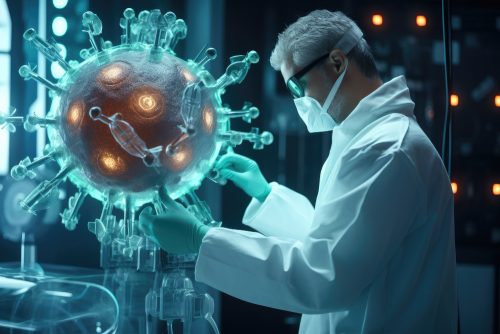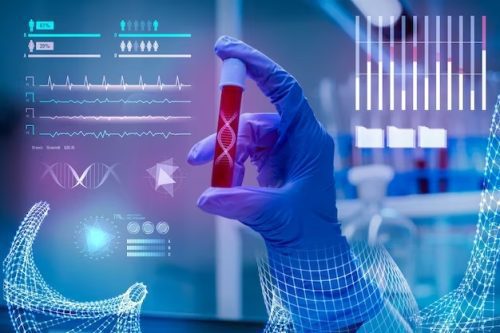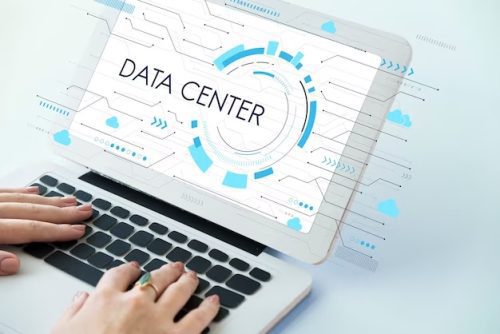Subscribe to Newsletter
Subscribe to Newsletter
Subscribe to Newsletter
Subscribe to Newsletter
Subscribe to Newsletter
Subscribe to Newsletter
Subscribe to Newsletter
Subscribe to Newsletter
Subscribe to Newsletter
Subscribe to Newsletter
Subscribe to Newsletter
Subscribe to Newsletter
Subscribe to Newsletter
Subscribe to Newsletter
Subscribe to Newsletter
Subscribe to Newsletter
Subscribe to Newsletter
Subscribe to Newsletter
Subscribe to Newsletter
Subscribe to Newsletter
Subscribe to Newsletter
Subscribe to Newsletter
Subscribe to Newsletter
Subscribe to Newsletter
Subscribe to Newsletter
Subscribe to Newsletter
Subscribe to Newsletter
Subscribe to Newsletter
Subscribe to Newsletter
Subscribe to Newsletter
Subscribe to Newsletter
Subscribe to Newsletter
Subscribe to Newsletter
Subscribe to Newsletter
Subscribe to Newsletter
Subscribe to Newsletter
Subscribe to Newsletter
Subscribe to Newsletter
Subscribe to Newsletter
Subscribe to Newsletter
Subscribe to Newsletter
Subscribe to Newsletter
Subscribe to Newsletter
Subscribe to Newsletter
Subscribe to Newsletter
Subscribe to Newsletter
Subscribe to Newsletter
Subscribe to Newsletter
Subscribe to Newsletter
Subscribe to Newsletter
Subscribe to Newsletter
Subscribe to Newsletter
Subscribe to Newsletter
Subscribe to Newsletter
Subscribe to Newsletter
Subscribe to Newsletter
Subscribe to Newsletter
Subscribe to Newsletter
Subscribe to Newsletter
Subscribe to Newsletter
Subscribe to Newsletter
Subscribe to Newsletter
Subscribe to Newsletter
Subscribe to Newsletter
Subscribe to Newsletter
Subscribe to Newsletter
Subscribe to Newsletter
Subscribe to Newsletter
Subscribe to Newsletter
Subscribe to Newsletter
Subscribe to Newsletter
Subscribe to Newsletter
Subscribe to Newsletter
Subscribe to Newsletter
Subscribe to Newsletter
Subscribe to Newsletter
Subscribe to Newsletter
Subscribe to Newsletter
Subscribe to Newsletter
Subscribe to Newsletter
Subscribe to Newsletter
Subscribe to Newsletter
Subscribe to Newsletter
Subscribe to Newsletter
Subscribe to Newsletter
Subscribe to Newsletter
Subscribe to Newsletter
Subscribe to Newsletter
Subscribe to Newsletter
Subscribe to Newsletter
Subscribe to Newsletter
Subscribe to Newsletter
Subscribe to Newsletter
Subscribe to Newsletter
Subscribe to Newsletter
Subscribe to Newsletter
Subscribe to Newsletter
Subscribe to Newsletter
Subscribe to Newsletter
Subscribe to Newsletter
Subscribe to Newsletter
Subscribe to Newsletter
Subscribe to Newsletter
Subscribe to Newsletter
Subscribe to Newsletter
Subscribe to Newsletter
Subscribe to Newsletter
Subscribe to Newsletter
Subscribe to Newsletter
Subscribe to Newsletter
Subscribe to Newsletter
Subscribe to Newsletter
Subscribe to Newsletter
Subscribe to Newsletter
Subscribe to Newsletter
Subscribe to Newsletter
Subscribe to Newsletter
Subscribe to Newsletter
Subscribe to Newsletter
Subscribe to Newsletter
Subscribe to Newsletter
Subscribe to Newsletter
Subscribe to Newsletter
Subscribe to Newsletter
Subscribe to Newsletter
Subscribe to Newsletter
Subscribe to Newsletter
Subscribe to Newsletter
Subscribe to Newsletter
Subscribe to Newsletter
Subscribe to Newsletter
Subscribe to Newsletter
Subscribe to Newsletter
Subscribe to Newsletter
Subscribe to Newsletter
Subscribe to Newsletter
Subscribe to Newsletter
Subscribe to Newsletter
Subscribe to Newsletter
Subscribe to Newsletter
Subscribe to Newsletter
Subscribe to Newsletter
Subscribe to Newsletter
Subscribe to Newsletter
Subscribe to Newsletter
Subscribe to Newsletter
Subscribe to Newsletter
Subscribe to Newsletter
Subscribe to Newsletter
Subscribe to Newsletter
Subscribe to Newsletter
Subscribe to Newsletter
Subscribe to Newsletter
Subscribe to Newsletter
Subscribe to Newsletter
Subscribe to Newsletter
Subscribe to Newsletter
Subscribe to Newsletter
Subscribe to Newsletter
Subscribe to Newsletter
Subscribe to Newsletter
Subscribe to Newsletter
Subscribe to Newsletter
Subscribe to Newsletter
Subscribe to Newsletter
Subscribe to Newsletter
Subscribe to Newsletter
Subscribe to Newsletter
Subscribe to Newsletter
Subscribe to Newsletter
Subscribe to Newsletter
Subscribe to Newsletter
Subscribe to Newsletter
Subscribe to Newsletter
Subscribe to Newsletter
Subscribe to Newsletter
Subscribe to Newsletter
Subscribe to Newsletter
Subscribe to Newsletter
Subscribe to Newsletter
Subscribe to Newsletter
Subscribe to Newsletter
Subscribe to Newsletter
Subscribe to Newsletter
Subscribe to Newsletter
Subscribe to Newsletter
Subscribe to Newsletter
Subscribe to Newsletter
Subscribe to Newsletter
Subscribe to Newsletter
Subscribe to Newsletter
Subscribe to Newsletter
Subscribe to Newsletter
Subscribe to Newsletter
Subscribe to Newsletter
Subscribe to Newsletter
Subscribe to Newsletter
Subscribe to Newsletter
Subscribe to Newsletter
Subscribe to Newsletter
Subscribe to Newsletter
Subscribe to Newsletter
Subscribe to Newsletter
Subscribe to Newsletter
Subscribe to Newsletter
Subscribe to Newsletter
Subscribe to Newsletter
Subscribe to Newsletter
Subscribe to Newsletter
Subscribe to Newsletter
Subscribe to Newsletter
Subscribe to Newsletter
Subscribe to Newsletter
Subscribe to Newsletter
Subscribe to Newsletter
Subscribe to Newsletter
Subscribe to Newsletter
Subscribe to Newsletter
Subscribe to Newsletter
Subscribe to Newsletter
Subscribe to Newsletter
Subscribe to Newsletter
Subscribe to Newsletter
Subscribe to Newsletter
Subscribe to Newsletter
Subscribe to Newsletter
Subscribe to Newsletter
Subscribe to Newsletter
Subscribe to Newsletter
Subscribe to Newsletter
Subscribe to Newsletter
Subscribe to Newsletter
Subscribe to Newsletter
Subscribe to Newsletter
Subscribe to Newsletter
Subscribe to Newsletter
Subscribe to Newsletter
Subscribe to Newsletter
Subscribe to Newsletter
Subscribe to Newsletter
Subscribe to Newsletter
Subscribe to Newsletter
Subscribe to Newsletter
Subscribe to Newsletter
Subscribe to Newsletter
Subscribe to Newsletter
Subscribe to Newsletter
Subscribe to Newsletter
Subscribe to Newsletter
Subscribe to Newsletter
Subscribe to Newsletter
Subscribe to Newsletter
Subscribe to Newsletter
Subscribe to Newsletter
Subscribe to Newsletter
Subscribe to Newsletter
Subscribe to Newsletter
Subscribe to Newsletter
Subscribe to Newsletter
Subscribe to Newsletter
Subscribe to Newsletter
Subscribe to Newsletter
Subscribe to Newsletter
Subscribe to Newsletter
Subscribe to Newsletter
Subscribe to Newsletter
Subscribe to Newsletter
Subscribe to Newsletter
Stem Cell Technologies and Regenerative Medicine
Shaping the Future of Healing with Stem Cells.
Online/ e-LMS
Mentor Based
Advanced
3 Months
About
This comprehensive program covers the fundamental principles of stem cell biology, technologies, and their applications in regenerative medicine. Designed for professionals seeking to enhance their expertise, the program combines theoretical knowledge with hands-on laboratory experiences.
Aim
The aim is to equip participants with cutting-edge knowledge and practical skills in stem cell technologies and their applications in regenerative medicine, enabling advancements in medical treatments and therapeutic strategies.
Program Objectives
- Understand the basic biology and types of stem cells, including embryonic, adult, and induced pluripotent stem cells.
- Explore the ethical, legal, and regulatory frameworks guiding stem cell research and therapy.
- Gain practical experience in stem cell culture, differentiation, and characterization techniques.
- Discuss case studies and current research breakthroughs in regenerative medicine.
- Develop skills to apply stem cell technologies in clinical settings for therapeutic purposes.
Program Structure
Month 1: Introduction and Fundamentals
Week 1: Introduction to Stem Cells
- Interactive timeline highlighting key milestones in stem cell research.
- Overview of basic stem cell concepts and terminology.
- Introduction to the impact of stem cells in modern science.
Week 2: Types of Stem Cells and Their Sources
- Detailed descriptions of different stem cells: embryonic, adult, and induced pluripotent.
- Sources and origins of various stem cells.
- Comparative analysis of the potential uses of each stem cell type.
Week 3: Stem Cell Biology and Growth Factors
- Explorations of cell division and differentiation processes in stem cells.
- Role and types of growth factors in stem cell biology.
- Interactive animations demonstrating stem cell behavior.
Week 4: Ethical, Legal, and Social Implications
- Case studies exploring ethical debates in stem cell research.
- Overview of legal frameworks governing stem cell use globally.
- Discussions on the social impact and public perception of stem cells.
Month 2: Clinical Applications and Techniques
Week 5: Stem Cell Therapy: Principles and Procedures
- Step-by-step guides on stem cell therapy protocols.
- Simulations of stem cell preparation techniques.
- Overview of stem cell delivery methods in clinical settings.
Week 6: Tissue Engineering and Regenerative Medicine
- Detailed analysis of tissue engineering using stem cells.
- Case studies on regenerative medicine applications.
- Interactive 3D models of engineered tissues.
Week 7: Regenerative Medicine for Chronic Diseases
- Overview of stem cell applications in treating chronic conditions.
- Interactive diagrams of disease pathways targeted by stem cell therapies.
- Statistics on treatment outcomes and efficacy.
Week 8: Stem Cells in Cancer Treatment and Research
- Exploration of stem cell roles in oncology and cancer research.
- Access to a research database for current stem cell studies in oncology.
- Analysis tools for evaluating recent research and trends.
Month 3: Advanced Topics and Future Directions
Weeks 9 & 10: Cutting-edge Innovations in Stem Cell Technology
- Augmented reality explorations of stem cell interactions.
- Overview of recent innovations and technological advancements in stem cell research.
- Interviews highlighting future directions and potential breakthroughs.
Week 11: Personalized Medicine and Stem Cells
- Overview of genetic profiling in personalized medicine involving stem cells.
- Tools and techniques for customizing stem cell-based therapies.
- Workshops demonstrating the application of personalized approaches in regenerative medicine.
Week 12: Capstone Project and Peer Review
- Introduction to the tools and resources available for project development.
- Guidelines for effective collaboration and peer review processes.
- Strategies for presenting and critiquing developmental projects in stem cells.
Participant’s Eligibility
- Professionals in the fields of biotechnology, medicine, pharmaceutical sciences, and related disciplines.
- Researchers and academicians interested in expanding their knowledge and research scope in stem cell technologies.
- Graduate students in biological or medical sciences.
Program Outcomes
Participants will be able to:
- Identify and isolate various types of stem cells.
- Employ stem cell technologies in basic research and clinical applications.
- Navigate the ethical and regulatory landscapes impacting stem cell research.
- Innovatively apply regenerative medicine techniques to solve health issues.
Fee Structure
Standard Fee: INR 49,998 USD 1,300
Discounted Fee: INR 24999 USD 650
We are excited to announce that we now accept payments in over 20 global currencies, in addition to USD. Check out our list to see if your preferred currency is supported. Enjoy the convenience and flexibility of paying in your local currency!
List of CurrenciesBatches
Certificate
Program Assessment
Certification to this program will be based on the evaluation of following assignment (s)/ examinations:
| Exam | Weightage |
|---|---|
| Mid Term Assignments | 50 % |
| Project Report Submission (Includes Mandatory Paper Publication) | 50 % |
To study the printed/online course material, submit and clear, the mid term assignments, project work/research study (in completion of project work/research study, a final report must be submitted) and the online examination, you are allotted a 1-month period. You will be awarded a certificate, only after successful completion/ and clearance of all the aforesaid assignment(s) and examinations.
Program Deliverables
- Access to e-LMS
- Real Time Project for Dissertation
- Project Guidance
- Paper Publication Opportunity
- Self Assessment
- Final Examination
- e-Certification
- e-Marksheet
Future Career Prospects
Participants of this program can pursue careers in:
- Academic and industrial research focused on stem cell and regenerative medicine.
- Clinical roles in pioneering therapeutic applications and clinical trials.
- Biotechnology firms developing stem cell-based products.
- Regulatory and ethical advisory positions.
Job Opportunities
- Stem Cell Researcher: Conduct fundamental research in understanding stem cell properties and differentiation processes.
- Tissue Engineer: Develop and refine techniques for creating tissues from stem cells for therapeutic purposes.
- Research Scientist: Work in academic, government, or industry settings to explore new applications of stem cells in disease treatment.
- Postdoctoral Fellow: Engage in advanced research projects after completing a PhD, often a stepping-stone to a full research career.
- Clinical Trial Coordinator: Manage clinical trials that test stem cell-based therapies on patients.
- Regenerative Medicine Specialist: Apply stem cell treatments directly in clinical settings, often requires medical qualifications.
- Biobanking Specialist: Oversee the storage and management of biological samples, such as stem cells, for research and therapy.
Enter the Hall of Fame!
Take your research to the next level!
Achieve excellence and solidify your reputation among the elite!
Related Courses

Artificial Intelligence for …

AI Applications in Pharmacy: …

SQL & Power BI Program: …

Data Visualization using …
Recent Feedbacks In Other Workshops
The course was more theoretical than practical.
nothing

